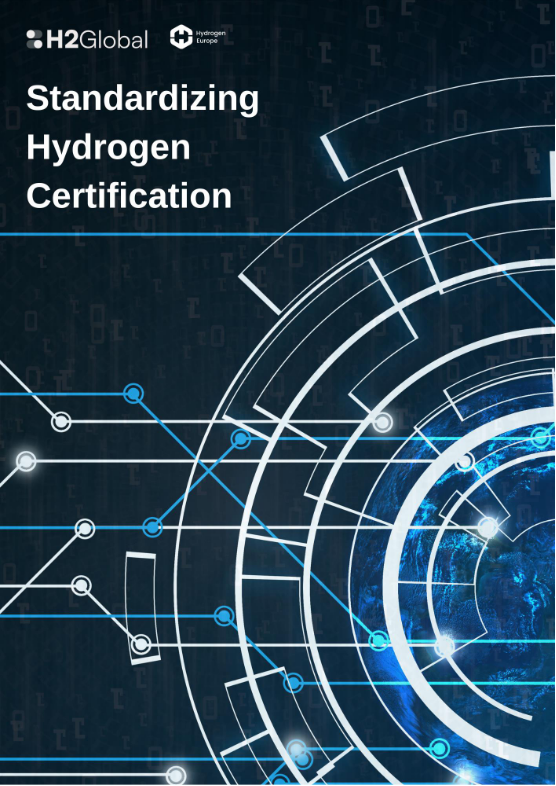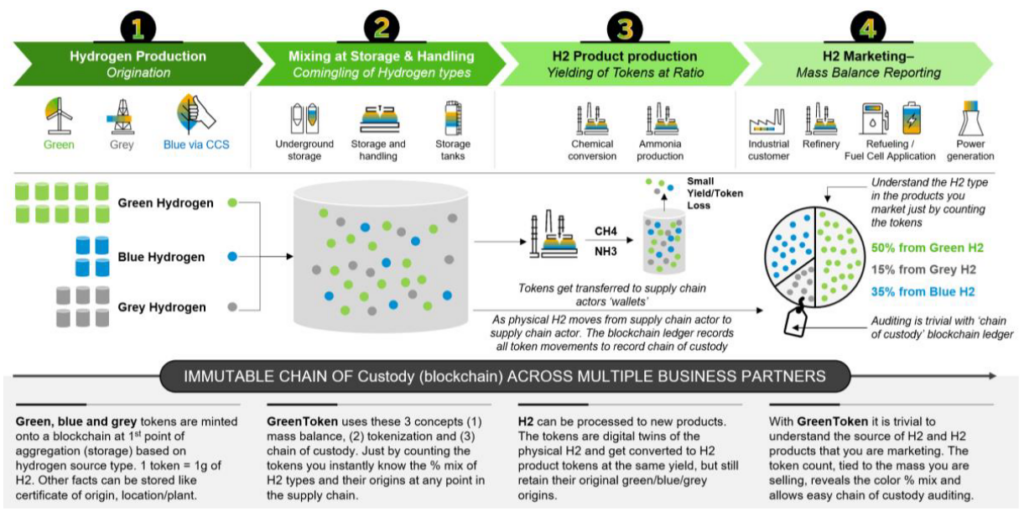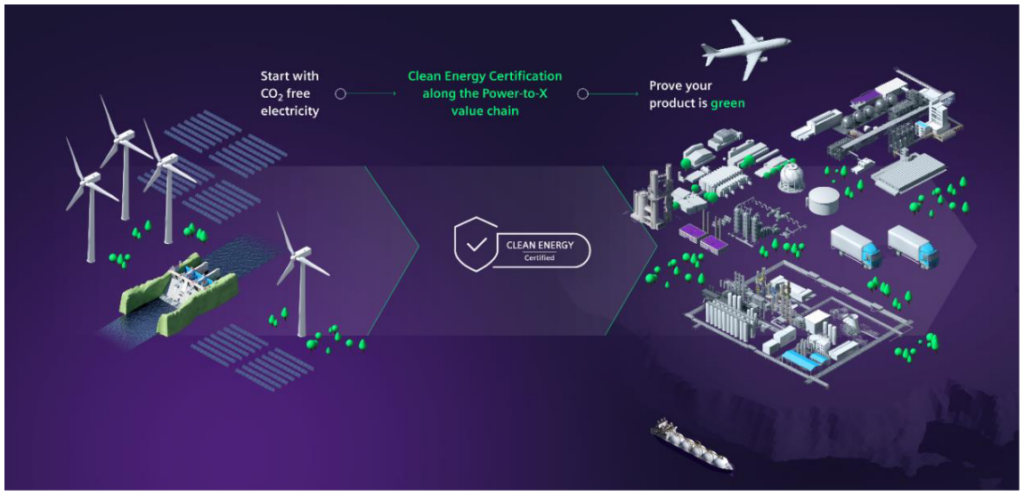Certification with blockchain: H2Global makes the case
By Oscar Pearce on October 04, 2023

H2Global – the German body behind “green” ammonia import tenders and a contract-for-difference scheme to encourage emerging markets – has released a new policy brief advocating for the use of blockchain in hydrogen certification schemes to increase traceability, transparency and interoperability.
While blockchain has been floated as a useful tool for certification before, H2Global’s policy brief outlines a clear vision for its implementation. Indeed, the brief highlights two emerging initiatives that share their vision – Siemens Energy’s “Clean Energy Certification as a service” and SAP’s “GreenToken”.
The case for blockchain
Certification schemes inevitably have some form of digital component. According to H2Global, digitisation should play a central role in certification, as it “enhance(s) communication and collaboration among stakeholders” by “promoting accessible information exchange”. Digitisation can also enable automation and “data accuracy and accountability”.
A key question, however, is how to ensure that a digital scheme is secure, transparent and trustworthy. Here, H2Global points to “digital twin technologies” such as blockchain as a promising solution.

A blockchain is a “decentralized, digital ledger where transactions are recorded chronologically and publicly”. So, rather than information being stored in a database under the control of some central administrator, there is instead a network of participating nodes governed by pre-set conditions. New data can only be added to the chain when those conditions are satisfied. For example, a new hydrogen producer may be required to pass a series of audits and inspections before they are permitted to upload digital twins of their units of hydrogen to the blockchain. That right to upload would likely require renewal after periodic inspections. Further along the supply chain, transportation emissions would similarly only be certified once the shipping provider is verified as a trusted reporter of emissions data.
This model offers radical transparency and security by entirely removing the discretion of central administrators and replacing that discretion with clear rules. Once a piece of data (e.g. the verified emissions profile of a particular unit of ammonia) is added to the chain, it is technologically impossible to manipulate it. The simplicity of this approach is efficient; data can be accessed automatically without the need to go through a central body – connecting producers and consumers across complex supply chains with relative ease.
Of course, there are limitations to this approach. A repeated disclaimer in H2Global’s policy brief is that full digitisation is unachievable:
We are very aware that not everything can be fully automated, and that digitization will not replace audits. The inspection of production sites and measurement equipment, the review of processes and procedures is the basis that data which is entered or uploaded into the digital tools is correct.
From Standardising Hydrogen Certification (H2Global, Sep 2023)
Furthermore, the brief notes that one strength of blockchain – it being “unalterable” – is also “an inherent limitation”. If erroneous (or intentionally duplicitous) data is added to the chain, it cannot simply be deleted by a central authority. Similarly, any blockchain certification scheme would ideally be sufficiently modular to permit further emissions to be attributed to a particular unit if, for example, an extra leg of transportation is required. Extreme permanence and transparency are considered core features of blockchain generally, but may be too inflexible for the needs of certification.
Blockchain-based certification in practice

To illustrate their vision of hydrogen certification supported by digital twin technology, H2Global points to two novel, currently operating schemes built around blockchain certification ledgers. The first scheme analysed in the brief is “GreenToken”, an SAP initiative in partnership with TÜV NORD. The second is Siemens Energy’s “Clean Energy Certification as a service” (CEC), a collaboration with TÜV SUD and DENA (the German Energy Agency).

CEC and GreenToken both target low- or zero-carbon energy producers seeking to reassure consumers of the sustainable credentials of their products. GreenToken exclusively targets hydrogen and derivatives, while CEC has a broader scope. The schemes offer various features including non-emissions ESG metrics and mass balance calculations. Crucially, the schemes also position themselves as sufficiently rigorous to satisfy the demands of emerging regulatory frameworks, such as the EU CBAM.
To learn more about these schemes, or to read H2Global’s full analysis of the potential role of blockchain in certification, see the policy brief here.